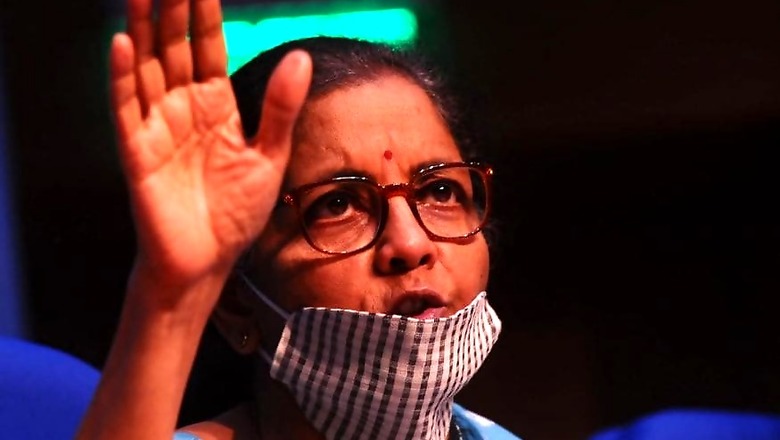
views
The finance minister earlier this week announced proposals intended to stimulate demand in the economy. This included redirecting a travel benefit titled Leave Travel Concession (LTC) afforded to central government employees. Specifically, central government employees get a benefit where domestic leisure travel including one trip to the employees’ hometown (alternatively two trips to the home town) are reimbursed. This benefit is extended once in four years.
The finance ministry proposal allows the reimbursement to be used towards the purchase of goods or services if done before March of 2021 with some stipulations. While the mechanics of the scheme are debatable, what the scheme does is it redirects this spending which otherwise would have languished. But it also brings to light the fact that travel demand continues to be muted. And this will remain so for a while.
The core reason why demand continues to be muted is fear. The fear of uncertainty; the fear of vulnerability; and the fear of the virus. Fear is also a strong sentiment that fails to segment along the lines of geography, age or social-economic factors. By virtue of being a very permanent emotion and thus traditional tools of marketing and discounting or even logic are not effective.
With regards to travel, as the pandemic continues, fear of exposure is prevalent. Passengers continue to be apprehensive, in no small part because the spread of the virus that has been traced back to travel (there is consensus that air-travel enabled the rapid spread). And also because if each unplanned interaction can is classified as a random risk, then the overall travel experience aggregates to significant randomized risk. As such, it is not the fear of non-sanitized transport that is holding back travellers. Rather the fear of infection and the multitude of interactions involved in travel.
This has shown itself in a variety of ways. Whether it is the surge in digital media consumption, the exponential growth of OTT platforms, or the nature of goods being bought, or the fact that travel loyalty points are being spent on purchase of goods — all indications are that apprehension about travel remains. And ironically, hotels and airports boasting about hospital levels of cleanliness and sanitization may actually be hurting more than helping. Because subconsciously one starts to equate the travel experience with that of risk. And this serves to reinforce the notion apprehension about travel.
As fear continues to pervade, not only have the travel volumes diminished significantly but there is a mismatch between supply and demand. Train bookings which were challenging even pre-pandemic now have to deal with reduced schedules; airfares have government mandated price-caps; and road-travel limits the consideration set.
There are also other behavioural changes that are also being witnessed. For instance, in the case of air-travel, passengers are now booking travel closer to the day of departure. Indeed, it is now fairly normal for some airlines to see 10%-12% of bookings come within the last twenty four hours to departure. Occupancy levels are hovering around 60% only propped up by capacity restrictions. And multiple travel segments have effectively converged into two: essential and non-essential travel.
To gauge travel demand one only needs to look at cash-flow for suppliers. This helps understand the gravity of the situation. Most travel providers collect money for tickets upfront and the service is rendered at a later date. That is, sales are made in advance of the service.
The actual flight or train ride or hotel stay may be several days or weeks later and only then will the provider realize a profit or a loss. Effectively one sells for cash-flow and then renders a service for profit or loss. Thus offering discounts for tickets booked at a later date enables cash generation and also securing a minimum amount of bookings after which the prices can be adjusted – ideally upwards.
Overall, this has been the revenue management strategy for the industry as a whole. But what this never accounted for is the emotion of fear. Travel providers are now staring at scenarios where the demand simply isn’t showing up. Discounting no longer works. And for a price-sensitive market like India that does not bode well.
In the short term the nature of travel has completely changed. Day trips between metro’s, weekend getaways, holiday travel, religions travel, and meetings and conferences that were the norm will take time to return. The supply demand mismatch is here to stay for the medium term. And for the time being the tool of discounting that was often used to stimulate demand is just not effective. Because you can’t discount fear.
As such the government move is aimed at redirecting muted travel spending – which otherwise would have lapsed. Whether this intent translates into impact remains to be seen.
Read all the Latest News and Breaking News here


















Comments
0 comment